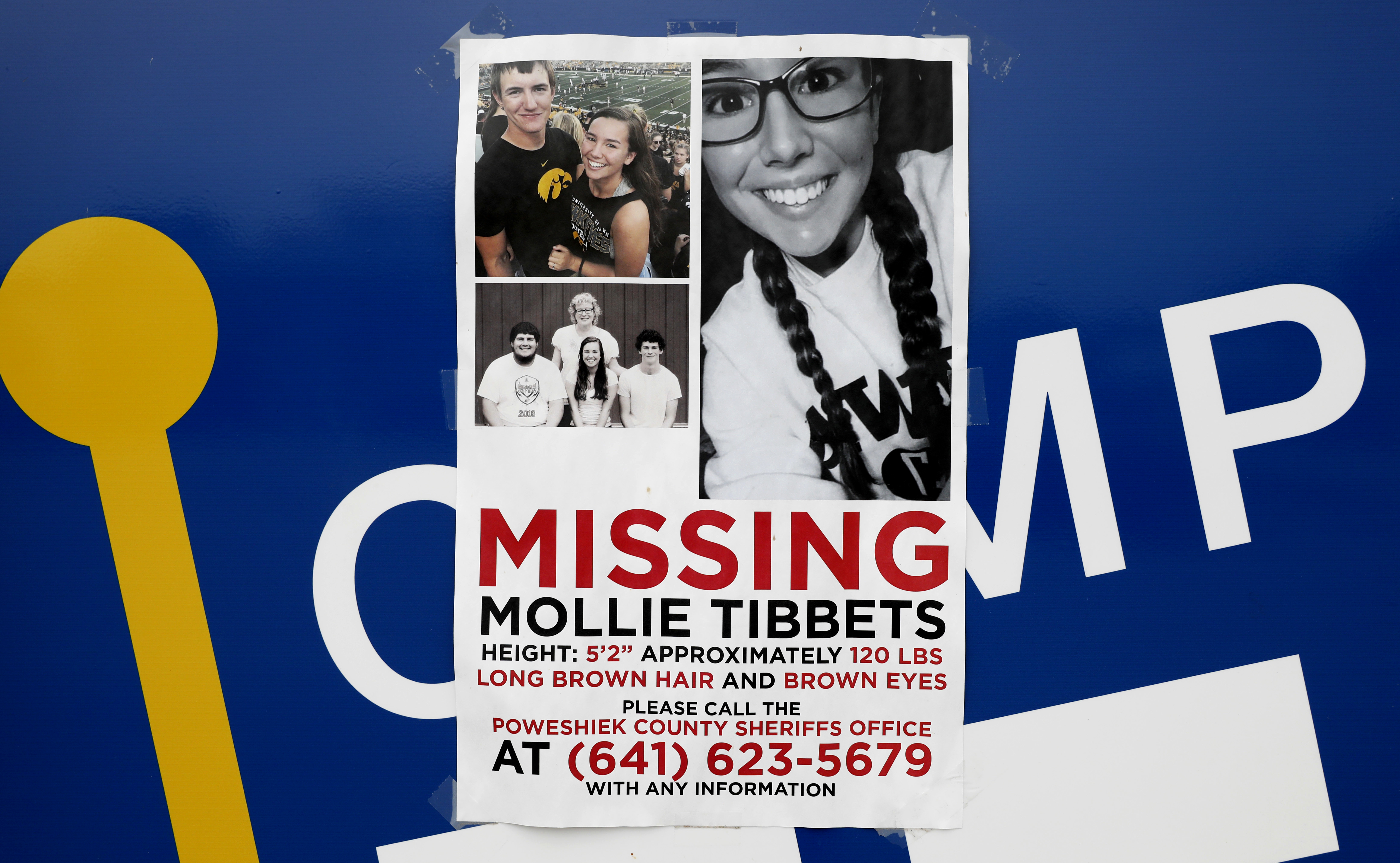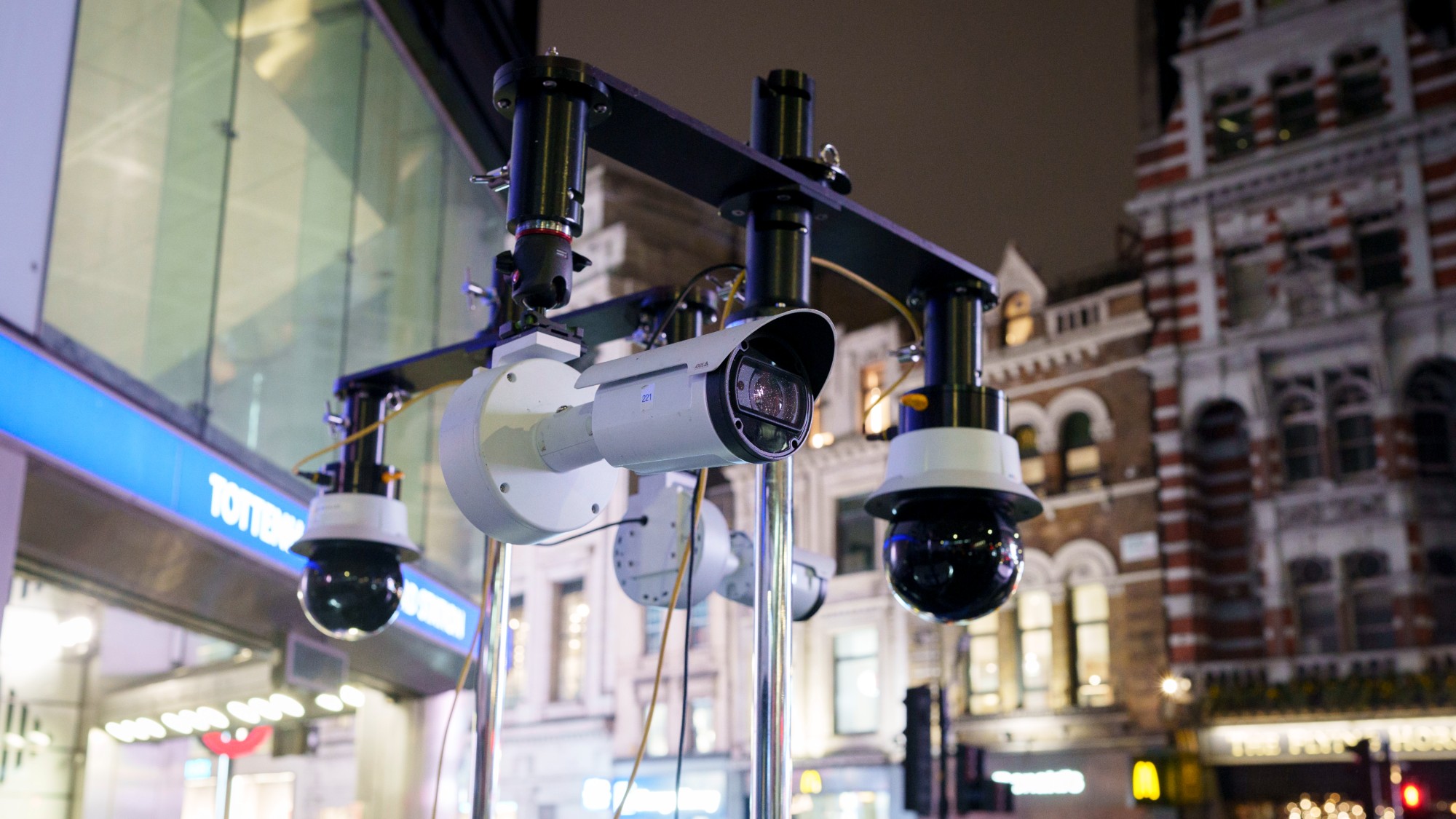The despicable politicization of Mollie Tibbetts' murder
Mollie Tibbetts' murder is abominable. It is also not a good argument against immigration.


The murder of University of Iowa sophomore Mollie Tibbetts by an immigrant farm worker was abominable and tragic. But it is absolutely shameful that President Trump and other restrictionists have seized on this incident to justify the collective punishment and demonization of all unauthorized immigrants.
Using horrific incidents to push preferred policies has become a depressing political ritual in this country. Trump, of course, is among our most egregious offenders. He routinely draws attention to the families of Americans killed by illegal immigrants to rally the public around his draconian immigration policies.
This time, he and the GOP have gone to a whole new low.
The Week
Escape your echo chamber. Get the facts behind the news, plus analysis from multiple perspectives.

Sign up for The Week's Free Newsletters
From our morning news briefing to a weekly Good News Newsletter, get the best of The Week delivered directly to your inbox.
From our morning news briefing to a weekly Good News Newsletter, get the best of The Week delivered directly to your inbox.
The police had barely recovered Tibbetts' body from the cornfields where Christian Bahena Rivera, her alleged murderer, had dumped her that Trump demanded that Americans elect more Republicans to fix America's immigration laws, which he called a "disgrace." The GOP's Virginia Senate nominee, Corey Stewart, a known friend of white supremacists, condemned "weak politicians" who are "afraid" to enforce the nation's immigration laws. Texas Gov. Gregg Abbott stoked popular outrage against sanctuary jurisdictions that he insinuated jeopardized public safety (never mind that this murder had nothing to do with sanctuary policies since Iowa does not embrace them). But the prize for crassness might go to National Review, for whom immigration restriction has been a signature issue for a long time. It ran an article insinuating that this incident somehow made it illicit to criticize the administration's cruel family separation border policies.
The speed with which restrictionists politicized Tibbetts' story — disregarding pleas by her family members not to do so — is surprising, but the script is not. This is exactly what they did after the San Francisco murder of Katie Steinle by a deranged illegal immigrant. And although Democrats are now making abolishing ICE a rallying cry, their august leaders, such as Hillary Clinton and California Sen. Dianne Feinstein, at the time happily went along with demonizing unauthorized immigrants as criminals.
The reality, however, is the exact opposite.
FBI statistics show that border towns like San Diego and El Paso, which have large unauthorized populations, have some of the lowest crime rates in the country — and conversely cities like Detroit and Baltimore that have few immigrants have among the highest. Correlation is not causation, and it is possible that undocumented immigrants move to cities with low crime rates rather than actually lowering these rates — although this would still show that undocumented immigrants don't lead to a rise in crime. However, there is other evidence that suggests that in fact they do indeed lead to a drop in crime rates.
A free daily email with the biggest news stories of the day – and the best features from TheWeek.com
Between 1991 and 2008, California added an unprecedented 3.7 million foreigners — about a third of them unauthorized. And what happened to the Golden State's crime rate? It dropped an eye-popping 55 percent.
What's true for California is also true for the rest of the country. Multiple studies attribute the precipitous drop in the national crime rate in the 1990s to a growth in immigration, specifically undocumented immigration. University of Wisconsin's Michael Light found earlier this year that the undocumented population in the United States has tripled since 1990, but the violent crime rate has halved.
These national trends dovetail nicely with state prison stats. A 2008 study by the University of California's Ruben Rumbaut found that American-born men between 18 and 39 are five times more likely to be incarcerated than foreign born men of the same age, including undocumented ones. His findings are totally consistent with those of the Federal Reserve's Kristin Butcher and Anne Morrison Piehl. They looked at the 1980, 1990, and 2000 Census data and found that the incarceration rates in the same 18-to-40 male cohort were far lower for immigrants than native-born men even though the former had lower wages and far worse health outcomes. What's more, this gap widened every year so that by 2000, native-born men were five times more likely to be incarcerated than immigrant men.
The most recent evidence confirming all this comes from Cato Institute's Alex Nowrasteh, who examined the incarceration data of Texas, the only state in the country that tracks convictions by immigration status. He found that in 2015, the rate of convictions per 100,000 undocumented immigrants was 16 percent lower than that of the native-born. What's more, the illegal immigrant conviction rate for homicide was 44 percent below that of the native born, the restrictionist hype about Tibbetts' murder notwithstanding.
The evidence is so compelling that even the ultra-restrictionists at the Center for Immigration Studies have been forced to admit that a "lot of data does suggest immigrants are less likely to be involved in crime." But they claim that this might be due to aggressive interior enforcement and deportation policies.
However, there is little proof of that too. Butcher and Piehl explicitly examined that possibility and found little evidence for it. The far more plausible explanation is that in complete contradiction to Trump's claim that Mexico and other countries dump anti-social "bad hombres" on us, "good hombres" self select to come to the United States. Yes, they have to break the law to live and work in this country because our broken immigration system offers few legal options for them to do so. But they are here to improve their lives and provide for their loved ones. The last thing they want to do is cause — or get — into trouble.
None of this matters to Trump and his restrictionist acolytes, of course. They are happy to use the sins of single individuals to collectively punish an entire community through draconian enforcement. But this is unfair and un-American. It is also an abuse of law enforcement resources that would be much better directed at genuine threats.
Editor's note: This article originally mischaracterized the illegal immigrant conviction rate for homicide in relation to that of the native born. It has since been corrected. We regret the error.
Shikha Dalmia is a visiting fellow at the Mercatus Center at George Mason University studying the rise of populist authoritarianism. She is a Bloomberg View contributor and a columnist at the Washington Examiner, and she also writes regularly for The New York Times, USA Today, The Wall Street Journal, and numerous other publications. She considers herself to be a progressive libertarian and an agnostic with Buddhist longings and a Sufi soul.
-
 Heavenly spectacle in the wilds of Canada
Heavenly spectacle in the wilds of CanadaThe Week Recommends ‘Mind-bending’ outpost for spotting animals – and the northern lights
-
 Facial recognition: a revolution in policing
Facial recognition: a revolution in policingTalking Point All 43 police forces in England and Wales are set to be granted access, with those against calling for increasing safeguards on the technology
-
 Codeword: December 14, 2025
Codeword: December 14, 2025The daily codeword puzzle from The Week
-
 Has Zohran Mamdani shown the Democrats how to win again?
Has Zohran Mamdani shown the Democrats how to win again?Today’s Big Question New York City mayoral election touted as victory for left-wing populists but moderate centrist wins elsewhere present more complex path for Democratic Party
-
 Millions turn out for anti-Trump ‘No Kings’ rallies
Millions turn out for anti-Trump ‘No Kings’ ralliesSpeed Read An estimated 7 million people participated, 2 million more than at the first ‘No Kings’ protest in June
-
 Ghislaine Maxwell: angling for a Trump pardon
Ghislaine Maxwell: angling for a Trump pardonTalking Point Convicted sex trafficker's testimony could shed new light on president's links to Jeffrey Epstein
-
 The last words and final moments of 40 presidents
The last words and final moments of 40 presidentsThe Explainer Some are eloquent quotes worthy of the holders of the highest office in the nation, and others... aren't
-
 The JFK files: the truth at last?
The JFK files: the truth at last?In The Spotlight More than 64,000 previously classified documents relating the 1963 assassination of John F. Kennedy have been released by the Trump administration
-
 'Seriously, not literally': how should the world take Donald Trump?
'Seriously, not literally': how should the world take Donald Trump?Today's big question White House rhetoric and reality look likely to become increasingly blurred
-
 Will Trump's 'madman' strategy pay off?
Will Trump's 'madman' strategy pay off?Today's Big Question Incoming US president likes to seem unpredictable but, this time round, world leaders could be wise to his playbook
-
 Democrats vs. Republicans: who are US billionaires backing?
Democrats vs. Republicans: who are US billionaires backing?The Explainer Younger tech titans join 'boys' club throwing money and support' behind President Trump, while older plutocrats quietly rebuke new administration
